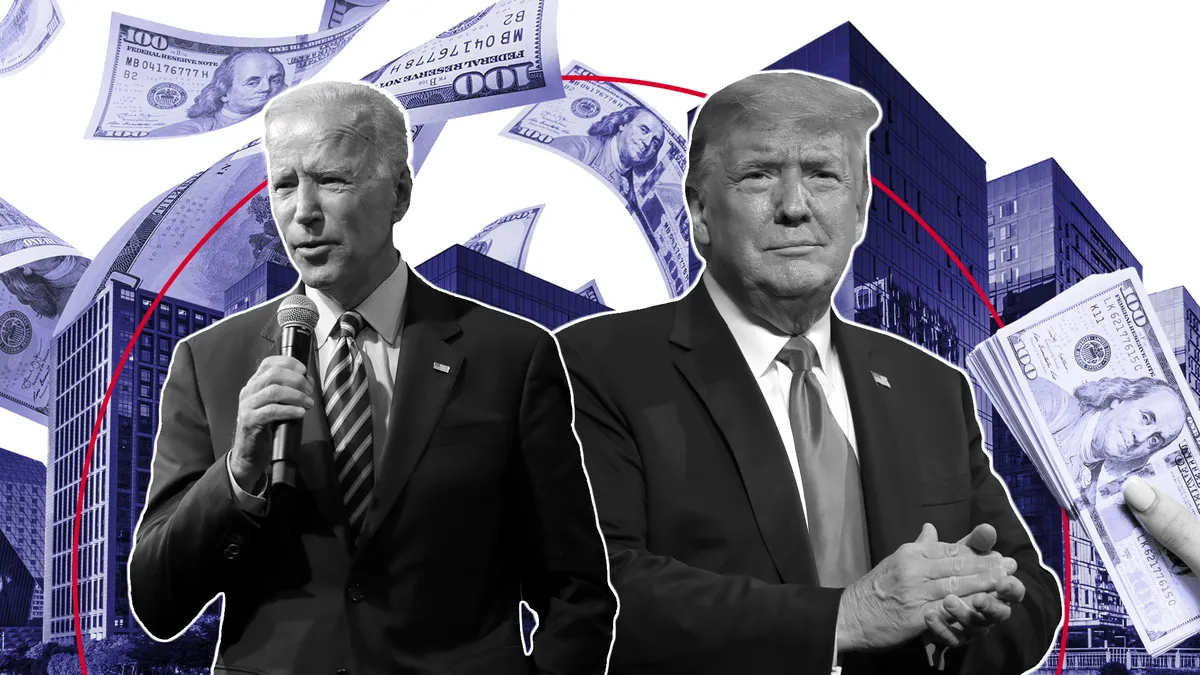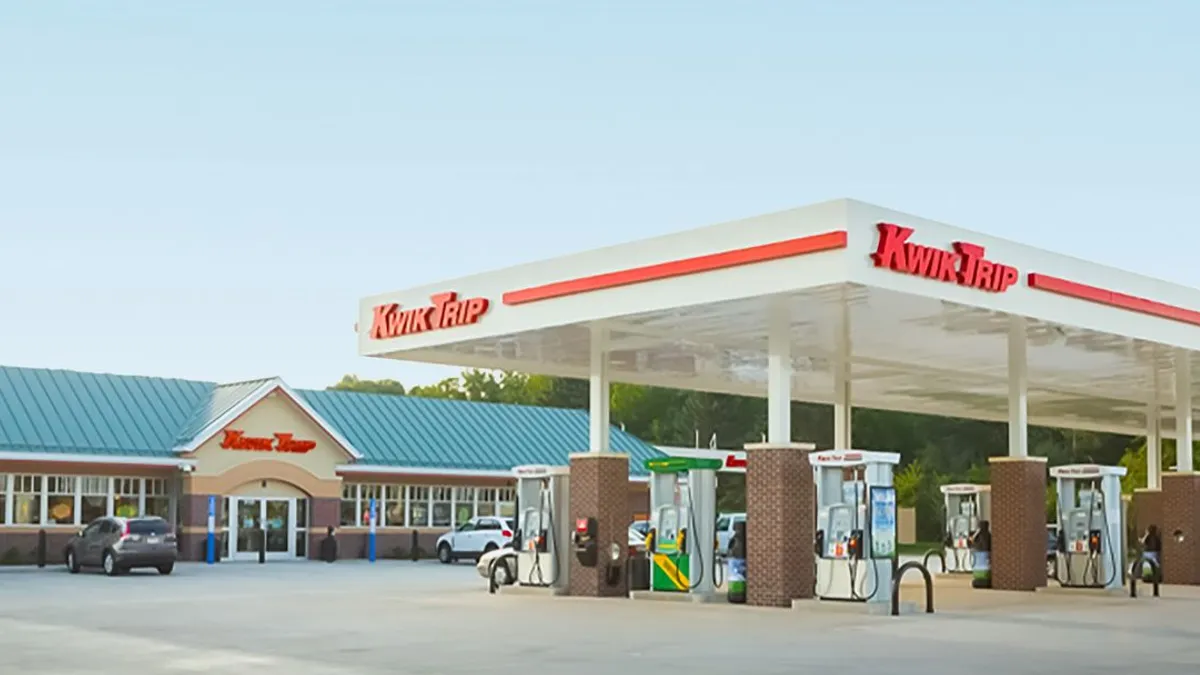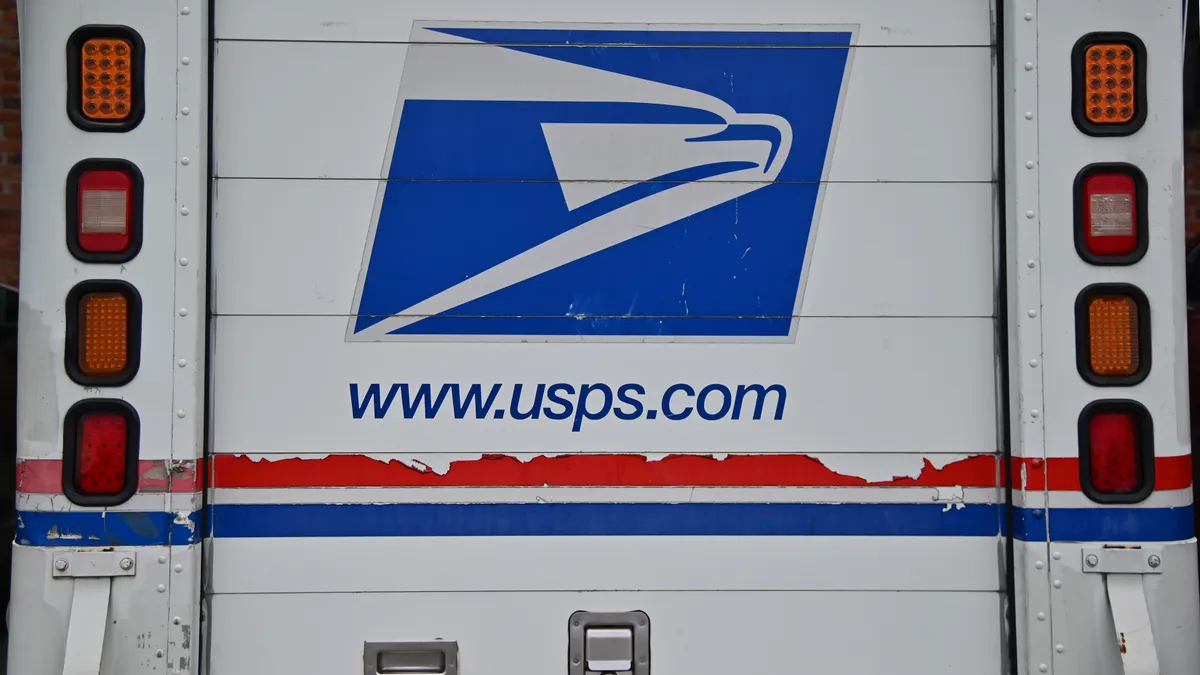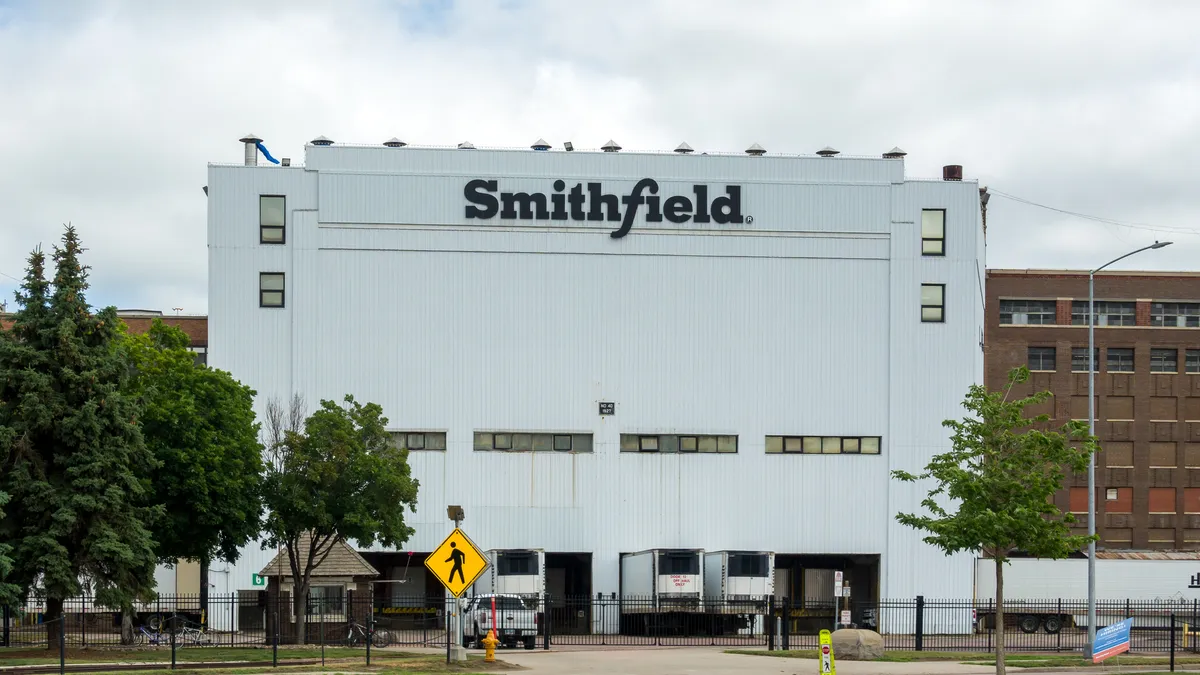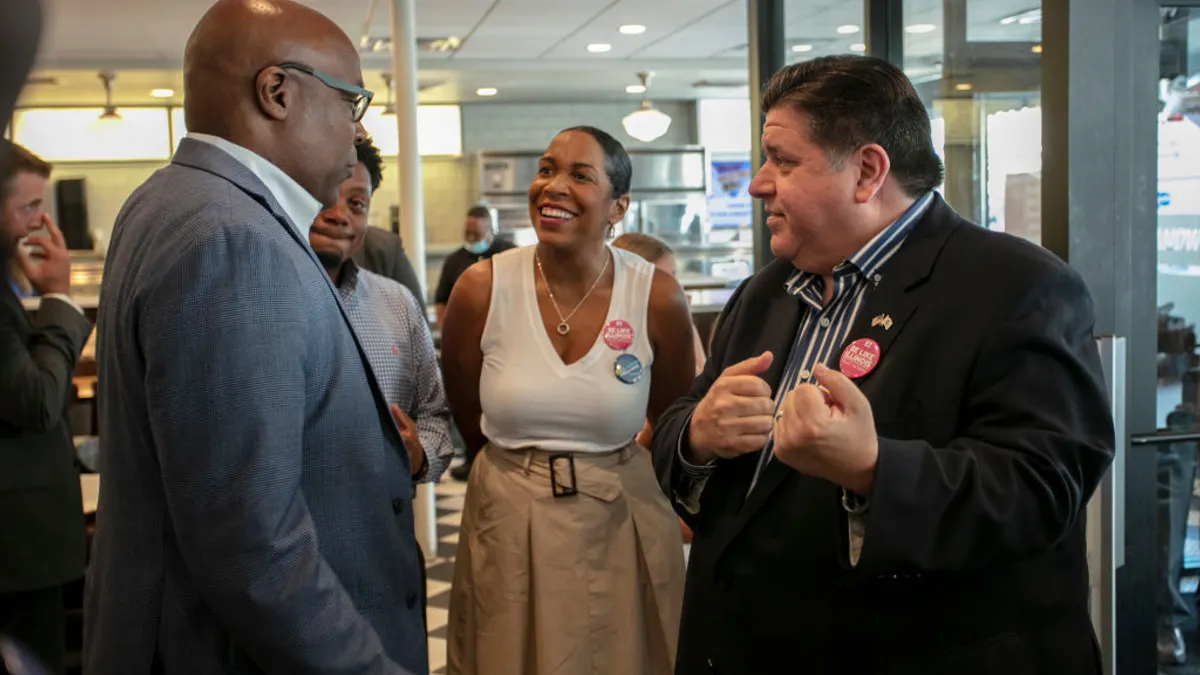President Donald Trump and former Vice President Joe Biden discussed pandemic response plans, immigration and more in competing town halls Thursday night — a replacement for a previously planned debate.
Biden town hall
Business recovery from COVID-19 emerged as a key talking point in the early portion of Biden's Philadelphia event. The former vice president said that Trump had the opportunity to ensure businesses could stay open, "if they got the kind of help they needed,” arguing that federal efforts faltered because "a significant portion” of federal relief funding "went to the wealthiest corporations in the country.”
Biden said his plan seeks to aid the reopening of businesses by focusing on precautions like installing physical barriers in addition to social distancing measures; crowd-size limits, testing and contact tracing. Responding to a question from the moderator about COVID-19 economic shutdowns, Biden said businesses could stay open "if, in fact, you can provide the guidance they need as well as the money to be able to do it.”
On the subject of vaccines, Biden said that scientists who have spoken to his campaign do not believe a vaccine would be available until "the beginning of next year into the spring of next year,” adding that the federal government needs to determine how the vaccine will be distributed. The Centers for Disease Control and Prevention has suggested a COVID-19 vaccine would be made available in a phased approach, with the first phase including healthcare workers, essential workers, persons over age 65 and those with high-risk health conditions.
Asked if he would mandate that citizens receive a COVID-19 vaccine, Biden said, "you can't,” but he added that he would meet with state and local government officials to discuss vaccinations as well as mandatory mask policies.
Biden said he would seek to raise corporate tax rates that were reduced under the 2017 Tax Cuts and Jobs Act.
Trump town hall
President Donald Trump answered questions from Florida voters during a Miami NBC News town hall meeting moderated by Today host Savannah Guthrie covering the COVID-19 pandemic, racial justice and immigration.
The president defended his administration's response to the pandemic. The U.S. is "rounding the corner” on the novel coronavirus and "we have the vaccines coming,” Trump said. "We have therapies that are absolutely incredible,” Trump said, adding that he received Regeneron's antibody treatment after contracting the virus. Guthrie asked him when was the last time he tested negative before he received a positive diagnosis for COVID-19, and if he received a test Sept. 29, the day of the first presidential debate. Trump said that following protocols, he is tested "often.”
"As far as masks are concerned, I'm okay with masks, I tell people to wear masks,” Trump said. But he also said that "85% of the people that wear masks catch it,” making reference to a Centers for Disease Control (CDC) and prevention report. The "85%” statistic that Fox News host Tucker Carlson also mentioned during his program is false and does not accurately represent the findings discussed in the CDC report, according to Politifact. The Americans with Disabilities Act (ADA) allows employers to require employees to wear masks, Michael D. Wong, a partner at SmithAmundsen, told HR Dive in a previous interview. However, the ADA may require the employer make an adjustment as an accommodation if a worker has a disability.
A voter asked Trump what his administration would do to better prepare law enforcement to work in collaboration with the communities that they serve and to prevent police brutality against Black and Latino Americans. The killing of George Floyd, an unarmed Black man, by now-fired Minneapolis police officer Derek Chauvin sparked nationwide protests for racial justice and companies were prompted by employees to reaffirm a commitment to diversity and inclusion as well as take measures to encourage societal change.
"Some people don't like it when I say it, but a lot of people agree — I've done more for the African American community than any president with the exception of Abraham Lincoln,” Trump said. "I have a great relationship, because of what I've done, with the African American community.” Trump named his administration's criminal justice reform measures and funding for historically Black colleges and universities as his efforts to support the Black community. A Wall Street Journal/NBC News poll taken Sept. 13-16 found Biden leading Trump among Black voters by 90% to 5%.
The president signed an executive order Sept. 22 halting diversity training for federal agencies that include "offensive and anti-American race and sex stereotyping and scapegoating.” The U.S. Chamber of Commerce wrote a letter to Trump Thursday, which said, "we fear that the [executive order] will diminish the amount of training that takes place” and "we have heard from some companies that they are suspending all D&I training.” The U.S Department of Labor's Office of Federal Contract Compliance Programs has questioned the diversity and inclusion plans of companies including Microsoft, which pledged to double the number of Black and African American employees in its U.S. workforce by 2025 and planned to invest $150 million in its diversity and inclusion programs over five years.
In a voter's question on immigration, Trump addressed the Deferred Action for Childhood Arrivals (DACA), a program created by the Obama administration that protects some young undocumented immigrants who arrived in the U.S. as children from deportation.
"We are going to take care of DACA,” Trump said. "We are going to take care of Dreamers. It's working right now, we're negotiating different aspects of immigration and immigration law.”
The Supreme Court blocked the Trump administration's attempt to end DACA in a 5-4 ruling June 18. Rescinding the policy was in violation of the Administrative Procedure Act and "arbitrary and capricious," the Court ruled. In a July 28 press release, which made reference to the Court's ruling, the Department of Homeland Security said it would "thoughtfully consider the future of DACA, including whether to fully rescind the program.” But also announced it would deny new DACA applications.
For attracting talent in the workplace, DACA has proven important to employers' strategies, Richard Burke, president and CEO of immigration services provider Envoy Global, told HR Dive in a previous interview. "While the pandemic has altered the employment landscape, many are still struggling to fill these high-skill positions," Burke said. "[Employers] know that these folks are here and working and have a tremendous amount to offer to their company and the economy."




